9 Star Hotel
Ido Haar , Israel , 2006 , 78' | Preview
The daily routine of illegal Palestinian construction workers in Israel’s occupied territories. Building luxury apartments 12 hours a day, living in improvised homes in the hills round the settlement at night.
November 8. 22.00, Toldi mozi - nagyterem
November 9. 16.30, Cirko 1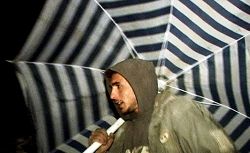
In Israel's occupied territories, thousands of Palestinians work illegally as construction laborers. After an arduous and dangerous journey, loaded with blankets and bags, they cross the hills to the places where they can find employment. At night they sleep on the hillcrests in improvised huts and coffin-like sleeping cubicles, a stark contrast to the luxury apartment complexes they build by day. But they have made homes for themselves, complete with cozy pillows and even electricity from batteries they have scraped together. The filmmakers follow Ahmed and Muhammad, one a merry collector of found objects, the other a philosophical critic of the Palestinian character. Together, they share food, belongings and stories, and live under the constant threat of arrest - police, soldiers and the secret service are all tirelessly on the alert for illegal workers. With raw, handheld images, this disconcerting yet touching film documents friendship, nostalgia and the uncompromising will to survive.
producer: Edna Kowarsky & Elinor Kowarsky – Eden Productions
screenplay: Ido Haar
camera: Ido Haar
editor: Ido Haar initial editing: Era Lapidproduction info:
Eden Productions
84 Arlozorov St.
Tel-Aviv 62647
Israel
tel.: 972.3.5273403
fax: 972.3.5236076
info@edenproductions.co.ilfilmography:
Melting Siberia, 2004
Between the Lines: India’s Third Gender
Thomas Wartmann, Germany, 2006, 80'
Flamboyant Laxmi leads a double life on the outskirts of Bombay: one side of her personality is Raju, a Bollywood choreographer who still lives with his parents; and the other side – "Laxmi" - has fought her way up the hierarchy of Hijras. The third gender in Indian society.
November 7. 20.15, Toldi mozi - kisterem
November 9. 20.00, Toldi mozi - nagyteremThe film follows Delhi-based photographer Anita Khemka as she sets out to explore the hidden hijra subculture of Bombay. Since she was a child, Khemka has been fascinated by the ornate femininity and captivating spiritual powers of the outcast hijras - biological men who dress as women but reject identification with either gender. Following three hijras, Asha, Rambha and Laxmi, Khemka enters the vibrant yet struggling hijra communities, openly discussing intimate details of their lives such as their matriarchal surrogate families, castration ceremonies, thoughts about sexuality and relationships and the challenges of overcoming economic dependence on begging and prostitution. Uniquely engaging because of Khemka's ability to initiate personal dialogue about femininity, sexuality and persistent cultural stereotypes about gender, this artful film provides fascinating insights into a social group that is a growing leader in the fight for gender and sexuality rights in India.
producer: Thomas Wartmann
screenplay: Thomas Wartmann
camera: Thomas Riedelsheimer
editor: Thomas Riedelsheimer
music: Nils Kacirek, Prakash S. Desai, Om Prakash Chaukan
sound: Nararayan Therarproduction info:
Filmquadrat GbR
Viktoriastr. 34
80803 München
Germany
tel. +49 89 383 298 20
fax. +49 89 383 298 21
markus.breimaier@filmquadrat.defilmography:
Timber Road - The Destruction of the rainforest, 1998 / The Jungle Detectives - Research in the Rainforest, 1998 / A new heart for Manfred A. - Heart-Transplantation, 1996 / Tracing Unhappiness - Research of Depression around the world, 1999 / Death in the Jungle - Poaching of Gorillas, Kenia, Kamerun, 1999 / Money or Life - The History of Bank Robbery, 2001/02 / Adobe Towns, Djenné - Town on the Banks of the Desert, 2003/04 / Living Heritage - ´Beyond Samarkand´ - Love story from Uzbekistan, 2005The Big Family
Huang Lingping & Zhu Shengwei, China, 2005, 82'
4 generations living under one roof under the despotic rule of a great grandfather who, once a striving businessman, seeks to retrieve some of that former glory.
November 11. 12.00, Toldi mozi - nagyterem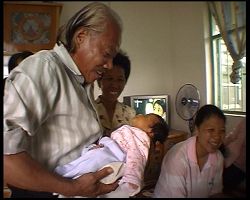
Zhue Zhe’s is one of the top families in the village. He is a pitiless patriarch who rules his family strictly. In the 1980s he made a fortune from a brick factory but since he invested in agriculture he has fallen deeply in dept. Zhue Zhe expects his children and their spouses, who all live under the same roof, to renounce any personal ambitions and help him in his time of need. However, the difficult economic conditions, Zhue Zhe’s bad temper and the younger generations’ desire for independence lead to an inevitable clash. Bitterness, suspicion and sorrow predominate, marriages crumble, but the family has to stay together, come what may. Ultimately, Zhe has to bow his head for the first time in front of everyone. The family tragedy that unfolds with all candor before the camera touches on bigger themes like the transformation of traditional lifestyles and family patterns, women's rights, and conflicting generational expectations in today’s rural China.
producer: Huang Zhucheng for China Guangxi Television
screenplay: Huang Lingping
camera: Zhu Shengwei
editor: Yan Zhong
sound: Zhu Shengweiproduction & sales info:
China Guangxi Television
73 Minzu Avenue
530022 Nanning, Guangxi
China
tel: +86 771 2196666
fax: +86 771 5854039
gxtv@gxtv.com.cn
www.gxtv.com.cnfilmography:
Lion Dancer / Road to the Second Life / Family Love / Living on the Terraced Field / Years We Came Through / The Last MigrationBridge Over the Wadi
Barak Heymann & Tomer Heymann , Israel , 2006 , 57'
The school, called Bridge over the Wadi, has places for 50 Jewish and 50 Arab students, but is located in the Arab part of the valley. Here, the children learn each other's language, culture and religious traditions. But how to relate to the national holidays?
November 9. 18.15, Toldi mozi - kisterem
November 9. 20.30, Cirko 1
In 2004, Arab and Israeli parents embarked on a joint initiative to establish a bilingual elementary school in Kara, a village in Israel's Wadi Valley. Fierce debates preceded the opening of the school. Although the initiative was idealistic and noble, the reality was that parents still had some major hurdles to overcome. In addition, they were forced to defend their decision in the face of opponents and skeptics. The school, which is called Bridge over the Wadi, has places for 50 Jewish and 50 Arab students, but is located in the Arab part of the valley. The filmmakers observe how students, faculty and parents struggle to coexist peacefully during the first exciting year. Teachers spend a great deal of time teaching mutual respect, and they arrange field trips to the mosque and the Wailing Wall in Jerusalem. Some parents feel reciprocal integration is going too far when students are asked to participate in each other's religious festivities. An Arab teacher has more and more difficulty in meeting the demands of parents. Yet by the end of the year, it appears that they have succeeded in laying the foundations, however shaky and unpredictable they may be. In 2005, twice as many students signed up to attend the school.
producer: Barak Heymann
screenplay: Tomer Heymann, Barak Heymann
camera: Uri Levi, Daniel Meran, Itay Raziel
editor: Amit Azaz, Lavi Ben Gal, Ron Goldman, Erez Laufer, Arik Leibovitch
music: Bery Sacharof, Eli Surani
sound: Erez Einyproduction info:
Heymann Brothers Films Company
37 Zvulun Street, Tel Aviv
66065 Israel
tel: +972 522 742 445
fax: +972 351 814 92
barak@barakfilms.comsales info:
Esther van Messel
First Hand Films
Fritz Heeb - Weg 5, Zürich
8050 Switzerland
tel: +41 443 122 060
fax: +41 443 122 080
esther.van.messel@firsthandfilms.com
www.firsthandfilms.comfilmography:
Barak Heymann: A Film About Nir, 2004 / The Third Time, 2005 / The Asparagus Lane, 2006 / My Village, 2006
Tomer Heymann: Big Mama, 1996Buddha's Lost Children
Mark Verkerk, The Netherlands, 2006, 96' | Preview
Once a boxer, this Buddhist monk has dedicated his life to raising orphaned and abandoned children in Thailand, a haven of heroin production.
November 7. 22.00, Toldi mozi - nagyterem
November 8. 18.30, Cirko 2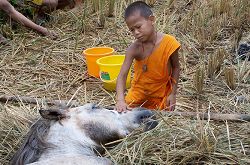
In the borderlands of Thailand's Golden Triangle, a rugged region known for its drug smuggling and impoverished hill tribes, a former Thai boxer turned Buddhist monk, Phra Khru Bah Neua Chai Kositto (aka the Tiger Monk), travels widely on horseback, fearlessly dispensing prayers, health care and education to villagers and recruiting novice monks for his monastery, The Golden Horse Temple. Once there, young boys undertake a program of kick-boxing, religious practice and horse rearing designed to teach them empathy on their path to enlightenment. Through the boys’ personal stories, the intriguing and controversial character of Phra Khru Bah is explored. His personal cult status within the local community explains only some of his success. Guided by the teachings of the Buddha, the monk reveals his soul-searching journey for truth. A warm reminder that compassion is not lost in this world.
producer: Pim van Collem & Ton Okkerse for EMS Films
screenplay: Mark Verkerk
camera: Rene Heijnen
editor: Helen Delachaux; Jos Driessen
music: Bernard Joosten; Somtow Sucharitkul
sound: Martin Giesmannproduction & sales info:
EMS Films
Amperestraat 10
1221GJ Hilversum
The Netherlands
tel: +31 35 6471750
fax: +31 35 6237132
ton.okkerse@emsfilms.com
www.emsfilms.comfilmography:
Awakening Giant, 1991 / Great Palaces of the World, 1992 / Heritage of Mankind, 1995 / Treasures of the Earth, 1997 / Quest for Ancient Egypt, 2001 / The Heat is On, 2004 / Bridging Two Worlds, 2005
Cabale in Kabul
Dan Alexe, Belga & France, 2006, 87' | Preview
Isaac and Zabulon live in a deserted synagogue in Kabul. The last two Afghan Jews spend their days blaming and hating each other. Who is to tell who sold the Tora when the only witnesses are themselves?
November 9. 18.00, Toldi mozi - nagyterem
November 10. 20.30, Cirko 2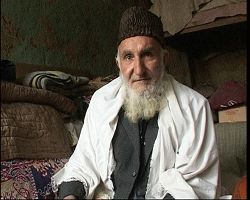
Isaac Levy and Zebulon Simantov are the two last Jews in Kabul. They hate each other with a vengeance and haven't spoken to each other in ten years. The elderly Isaac lives on the ground floor and makes a living by selling amulets to his Muslim neighbors. Middle-aged Zebulon lives on the top floor and haggles with the same Afghans over his illegally produced wine. There is no love lost between them; the two Jews systematically abuse and insult each other at every turn. Isaac is happy to divulge the fact that Zebulon collaborated with the Taliban and bribed them with favors. Zebulon, for his part, claims that Isaac converted to Islam; why else would he be called “Mollah Isaac?” Friends with both men, the director acts as double agent, bouncing between the two rivals, collaborating, refusing to judge yet emphatically exposing the smallest Jewish community on earth.
producer: Serge Kestemont, Frank Eskenazi, Hortense Quitard
screenplay: Dan Alexe
camera: Dan Alexe
editor: Frédéric Fichefet
sound: Dan Alexeproduction info:
Luna Blue Film
109 rue du Fort - 1060 Bruxelles
Belgium
tel: +32 2 537 40 70
fax : +32 2 534 76 37
lunabluefilm@skynet.besales info:
Stephan Riguet
Andana Films
Le Village
07170 Lussas, France
+33 4 75 94 34 67
sriguet@andanafilms.comfilmography:
Ghazavat - L'islam tchétchène, 1992 / Ik ben een soefi, 1993 / Howling for God, 1998Carla's List
Marcel Schüpbach, Switzerland, 2006, 101' | Preview
Behind the scenes at the International Criminal Tribunal for the former Yugoslavia in The Hague. The film follows Carla Del Ponte during her work as prosecutor there: a struggle against all odds, and especially against politics.
November 10. 16.15, Toldi mozi - kisterem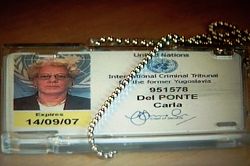
Filmmaker Marcel Schüpbach was given unprecedented access behind the scenes at the International Criminal Tribunal for the former Yugoslavia in The Hague. In an atmosphere of high tension, prosecutor Carla Del Ponte and her team relentlessly pursue Radovan Karadžić and Ratko Mladić, notorious perpetrators of crimes against humanity. Both Serbia and Croatia — as well as the international community —pledge total cooperation in helping to locate the suspects, but this does not seem to produce any concrete results. And time is running out: in September 2007, Del Ponte’s appointment as prosecutor ends. Moving between The Hague, New York, Zagreb, and Washington, Carla’s List vividly brings to life Del Ponte’s dogged race against the clock in pursuit of justice.
producer: Jean-Louis Porchet & Gérard Ruey voor CAB Productions
screenplay: Marcel Schüpbach
camera: Denis Jutzeler
editor: David Monti
music: Michel Wintsch
sound: Christophe Giovannoniproduction & sales info:
Wide Management
42bis rue de Lourmel
75015 Paris
France
tel: +33 153950464
fax: +33 153950465
wide@widemanagement.com
www.widemanagement.comselected filmography:
Murmure, 1971 / Andomia, 1980 / L’Allègement, 1983 / Happy End, 1987 / Chacun pour l'autre, 1994 / B comme Béjart, 2002Castells
Gereon Wetzel, Germany, 2006, 88' | Preview
There is an old tradition in Catalonia: building towers made out of people - castells. This 200 year-old tradition is not only a national sport but also a symbol of pride and of strong community ties.
November 10. 16.00, Toldi mozi - nagyterem
November 11. 18.30, Cirko 1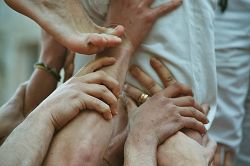
Castells are human towers, traditionally built as part of large competitive events in various Catalan communities. These human pyramids are made up of hundreds of people and reach a height of up to ten meters. In fierce competitions the different groups measure their prowess in narrow market-places and demonstrate how perfectly their small communities are holding together. This poetic film follows the fortunes of the Colla Joves team, from the small town of Valls near Tarragona. Driven by their rivalry with the other group from the town, they struggle for victory in the final derby. But their high hopes seem to be endangered by a terrified five-year-old, the tip of the pyramid.
producer: Anna Ginestí Rosell
screenplay: Gereon Wetzel
camera: Josef Mayerhofer
editor: Gereon Wetzel, Jörg Adolph
music: Francesc Cassu
sound: Stefan Ludwig, Daniel Samer, Ali Zojajiproduction & sales info:
Sphinx Media
Philipp Wundt
Franz Joseph Str. 41
80801 München
Germany
tel.: +49 89 52388836
fax: +49 89 52388838
philipp.wundt@sphinxmedia.tvfilmography:
Sprechproben, 2004Cemetery Club
Tali Shemesh, Israel , 2006, 90' | Preview
A portrait of the complex relationship between 80-year-old Lena and her 85-year-old sister-in-law Minia, two Holocaust survivors and members of a social club for elderly Polish-born Jerusalemites, who meet every Sabbath to discuss philosophy, politics and poetry at the Mount Herzl National Cemetery.
November 10. 18.00, Toldi mozi - nagyterem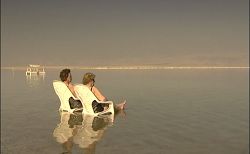
Poignant, intimate, at times hilarious, this documentary chronicles a social club of elderly, opinionated Polish-born Jerusalemites who meet every Sabbath to eat and discuss matters simple and sublime at the Mount Herzl National Cemetery, burial place of Israel’s leaders. Bossy 80-year-old Lena, a lawyer and judge, and her 85-year-old sister-in-law, mild-mannered Minia, a laborer, have known each other since their girlhood in Lodz. Both Holocaust survivors, they share a history and numerous family secrets, but hold different values. Bound together by fate, they have an intense, often quarrelsome relationship. They are also, respectively, the great-aunt and grandmother of filmmaker Tali Shemesh. More than 20 years ago, Lena was among the founders of “The Academy of Mount Herzl, ”a group whose goal is to “dissipate loneliness in the Golden Years, draw people together and offer mutual aid.” The group’s charter states that meetings will take place even if the number of members diminishes. Sadly, during the five years that Shemesh followed the group, a number of them did die, and eventually ill health forced those who remained to move the meetings to a protected housing project in Jerusalem.
producer: Assaf Amir, Guy Lavie
screenplay: Tali Shemesh
camera: Shark (Sharon) De Mayo
editor: Aliza Esquira
music: Motti Hefetz
sound: Eldad Gwetta; Rona Kenanproduction info:
Assaf Amir & Guy Lavie for Norma Productions LTD
18 Levontin St.
65112 Tel Aviv
Israel
tel: +972 3 5609311
fax: +972 3 5609443
info@norma.co.il
www.norma.co.ilsales info:
Bonne Smith
Star PR
1028 Queen Street West
Toronto, Ontario, Canada, M6J 1H6
tel: 416-488-4436
fax: 416-488-8438
starpr@sympatico.cafilmography:
Wedding Night, 1994 / To Be a Queen, 1994A Chance
Klára Trencsényi, Hungary, 2007, 57'
The change of regime in Hungary led to the closure of many factories and mines, leaving hundreds of thousands unemployed. A project was set up to help them, but now the project itself is under threat...
November 10. 14.15, Toldi mozi - kisterem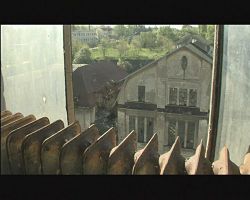
”I had a bit of a cold, and all of a sudden I fell off the bed, paralyzed. I'd had a stroke... When I recovered months later, I was fired from my job”, says forty-year-old Kata, the most cheerful member of the group. The others – also participants in the reintegration project run by the Pécs-based company UWYTA – face cancer, post-cancer recovery, mental problems or simply ”socialization disadvantages”. After the change of the political regime in Hungary hundreds of workplaces were closed down, and many people working in heavy industry or mining were made redundant. They haven’t been able to find a new job since. Our documentary focuses on a European Union-financed project launched in autumn 2006 under the name ‘Social Change = Chance’. It follows those who joined, their hopes, the program’s daily activities, its difficult and more successful moments. But in the end the project itself is threatened...
producer: András Fényes, Gábor Török, Ákos Tóth
camera: Klára Trencsényi, István Szőnyi
editor: Károly Szalai
music: Károly Binder
sound: István Pergerproduction info:
Titánia Master Pro
1062 Budapest, Benczúr u. 11.
tel.: +36 1 413 6820
titania@titania.hu
www.titania.huChildren of the Prophet
Sudabeh Mortezai , Austria , 2006 , 86'
A look at the Moharram (commemoration of the martyrdom of a Shiite religious figure) through the eyes of ordinary people in Tehran. Non-orthodox youngsters, middle-aged women and religious youths all have their say.
November 10. 16.30, Cirko 1
November 10. 22.00, Toldi mozi - nagyterem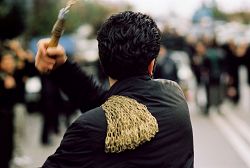
The film follows four protagonists in Tehran during the Shiite mourning rituals of Ashura, commemorating the death of Imam Hossein, the grandson of the Prophet Mohammad. All over Tehran and other Iranian cities people relive Imam Hossein’s story with passion plays and processions carrying the Alam, heavy, ornate metal structures up to 20 meters wide. The director looks at the Moharram from the perspective of average citizens of Tehran. For non-orthodox youngsters, the ritual is mainly an opportunity to meet members of the opposite sex. A middle-aged woman and her female friends put their energy into the preparation of an enormous feast. Young religious men come closer to each other during this major event, which ends with the Day of Ashura, known for its traditional flagellation ritual. A rare, intimate insight into Shiite beliefs as well as life in contemporary Iranian society caught between tradition and modernity.
producer: Oliver Neumann for Bonusfilm
screenplay: Sudabeh Mortezai
camera: Vahid Firooz, Rozette Ghadery
editor: Oliver Neumann
music: Dastgah Homayoun, Khosrow Soltani (Composition, Ney, Duduk)
sound: Nezam Kiaie, Amir Hossein Rassouli, Mazyar Shykh Mahboobyproduction info:
Bonusfilm
Bindergasse 11/28
A-1090 Vienna
Austria
tel: + 43 319 24640
fax: + 43 319 246428
office@bonusfilm.at
www.bonusfilm.atsales info:
Autlook Films
Zieglergasse 75/1
1070 Vienna, Austria
tel: +43 720 55 35 7
welcome@autlookfilms.com
www.autlookfilms.comConsultation
Hélène de Crécy, France, 2006, 91'
French society from a different perspective. A priviledged view of the consulting room of the eloquent French general practitioner Luc Perino who deals with patients from all walks of life with different complaints.
November 11. 14.15, Toldi mozi - kisterem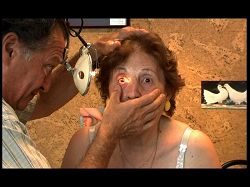
The daily routines of a general practitioner, in stark contrast with the highly specialized world of today’s medical practices. Doctor Luc Perino is a hero in his own unspectacular way. He receives people at all stages of life: from newborn babies to the dying, and everyone else who knocks at his door with their complaints: a young man of North-African descent who feels nervous and can't get a job; a young Asian woman with an unwanted pregnancy; a woman with anxiety attacks and an uncommunicative unemployed husband; an older woman whose main problem seems to be that she does not feel at home among the other elderly people in her service flat, and a host of other patients. There are as many people as there are pathologies, as many stories as there are pains, as many situations as there are issues. Doctor Perino does what he can, but during many a conversation you sense a certain despair, which is confirmed by a number of direct comments to the camera after consultations. What can a doctor do in a world with high work pressure, unemployment, bad marriages and fragile old people? Doctor Luc Perino may not be perfect, but he is the best guide we can wish for in the territory of humanity in medicine.
producer: Caroline Roussel for Arturo Mio
screenplay: Hélène de Crécy
camera: Hélène de Crécy, Jean-François Reverdy
editor: Emmanuelle Baude
music: Pierrick Hardy
sound: Suzanne Newmanproduction & sales info:
Arturo Mio
68 rue René Boulanger
75010 Paris
France
tel: +33 1 53728400
fax: +33 1 53728401
info@arturomio.com
www.arturomio.com
The Damned
Petr Orozovič, Czech Republic, 2006, 75'
In the Congo it has become common for unwanted children to be labeled as "possessed". Exorcisms are performed on these children and if they fail, they are banished from the community. Natural selection or profitable deceit?
November 8. 18.15, Toldi mozi - kisterem
November 9. 18.30, Cirko 2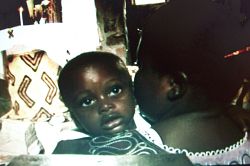
Filmed in Congo, the documentary investigates a custom which connects evil and witchcraft by labeling unwanted children as possessed by the devil. Exorcisms are performed on such children and if they fail, the children are banished from the community and become homeless. Hundreds of them live on the streets of today's Kinshasa, with no way to survive except by begging or petty theft. The journey into the dark heart of the black continent leads through various characters who manage to make a profitable business out of this hellish medieval drama. The viewer becomes witness not only to bizarre stories from the lives of children, but also to an incredible array of characters. Portraits of shamans and modern-day exorcists gradually reveal the mechanisms of a system that feeds on poverty and desperation. Damnation turns out to be profitable scam for everyone - except the children.
producer: Marek Vítek
screenplay: Tomáš Petráň
camera: Petr Orozovič
editor: Petr Orozovičproduction info:
Marek Vítek
A-NEWS S.R.O.
Spálená 43
110 00 Praha 1
Czech Republic
tel: +420 222 516 974
fax: +420 222 516 964
info@a-newsreport.com
marekvitek@a-newsreport.comfilmography:
Ellis Island, 1994 / Cuba Libre, 1998 / Dobyvatele – Argentina, Bulharsko (2006)
Escape Into Love
Edit Köszegi, Hungary, 2006, 40'
Winner of the "Best Documentary Award" at the 2007 Hungarian Film Week, the film is a heartrending story of a 50-year old widow, a mother of 7, who after falling in love, left her family behind.
November 11. 16.15, Toldi mozi - kisterem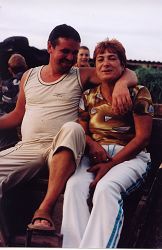
“I met Eta at the river Bódva, close to the forest. It was her laughter that made me notice her. She was wearing a red jumper sliding barefoot in the snow. “I’m not cold – she said – my heart makes me warm.” Eta was 14 when she married Boldi, the master basket-weaver of the entire region. They lived poorly in Szendrőlád, but in love, peace and harmony. Eta bore him 7 children, one daughter, and 6 sons. The eldest had their own families already. Boldi and Eta even had a handful of grandchildren. Only Iván and Roki, the two youngest, still at school, still lived with them. One day I got a call from Eta. She asked me to visit and make a film of Boldi, so that she would have a record to remember him by forever. We went there and we filmed what she wanted, and the way she wanted it. Then she was left all alone. She tried to come to terms with her situation. She acted like a strong man – and she had to, since she still had two adolescent children. She did everything she could to earn money. By picking and selling mushrooms, harvesting potatoes, she managed to send Roki to secondary school in Tokaj, so that he would become a chef. And she called us to visit again, to witness that she had achieved. A couple of years later she introduced a man from Romania, Zsolti. Her eyes were shining. She was in love, and didn’t care about the borders – neither that between countries, nor those within the family. She wanted to live.” Edit Kőszegi
producer: Vészi János
camera: Róbert Bordás, Henrik Kállai, Róbert Kluzsán, Gyula Kőszegi
editor: Mária Rigóproduction info:
Fórum Film Alapítvány
Hungary, 1145 Budapest, Róna u. 174.
tel: + 36 1 220-5413
fax: + 36 1 251-5666/608
forumfilm@mail.datanet.huEven If She Had Been a Criminal
Jean-Gabriel Périot, France, 2006, 10' | Preview
France, summer 1944, the Liberation. The public punishment of women accused of having affairs with Germans during the war. A different look at liberation.
November 7. 18.15, Toldi mozi - kisterem
November 8. 20.15, Toldi mozi - kisterem
November 8. 20.30, Cirko 2
November 9. 18.15, Toldi mozi - kisterem
November 10. 14.15, Toldi mozi - kisterem
November 10. 18.30, Cirko 1
November 11. 16.30, Cirko 2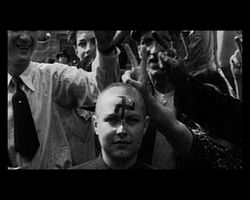
This stunning and masterful film covers a lot of ground for its short running time. Initially we’re exposed to a blur of archival footage rushing by at high speed, which despite its pace, captures the insanity and devastation of France during World War II. The dizzying images start to slow as the film focuses on the triumphant celebration of a liberated country. Then abruptly the celebration turns to cruelty as we witness the public humiliation and punishment of women accused of having been the lovers of German soldiers during the war. Their heads are shaved, they are beaten and forced to paint swastikas on their faces. As the camera pans through the crowd the film shows the shocking breadth of emotion present: from the shame of the victims to the hatred and joy in the eyes of the perpetrators, it is evident that the atrocities of the war lived on long after Hitler’s armies were defeated. A quite different look at the liberation of France.
producer: Jean-Gabriel Periot, Yves Le Yaouanq for Envie de Tempête Productions
screenplay: Jean-Gabriel Periot
camera: Jean-Gabriel Periot
editor: Jean-Gabriel Periot
music: Jean-Gabriel Periot
sound: Jean-Gabriel Periotproduction info:
Envie de Tempête Productions
57, rue de Tocqueville
75017 Paris
France
tel: +33 1.49.98.39.94
fax: +33 1.49.46.92.09
enviedetempete@wanadoo.frsales info:
Heure Exquise!
B.P. 113 Le Fort, avenue de Normandie
Mons-en-Baroeul F-59370
France
tel: +33 320 432432
fax: +33 320 432433
contact@exquise.org
www.exquise.orgfilmography:
Gay? 2000 / Intimated Diary-Journal Intime, 2001 / Before I Was Sad - Avant j'étais triste, 2002 / 21.04.02, 2002 / We Are Winning Don't Forget, 2003 / Devil Inside, 2004 / Dies Irae, 2005 / Undo, 2005 / Under Twilight, 2006 / Anijuman No Borei (200000 Phantôms), 2007Exile Family Movie
Arash T. Riahi, Austria, 2006 , 92'
A film about home and exile, parents, grandparents, brothers and sisters and all the other relatives, close and distant, in an extended Persian family. Some of them have emigrated to Europe or America, but they all join together for a trip to Mecca to meet those they left behind.
November 10. 14.00, Toldi mozi - nagyterem
November 10. 16.30, Cirko 2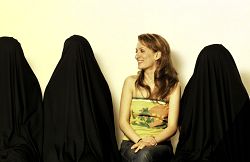
The bittersweet story of a family torn apart by politics, scattered across continents, divided by cultures, and their attempt to come together for their first true family reunion in decades. 20 years ago the Persian filmmaker Arash emigrated from Iran to Austria with his father, mother and little sister. Many other extended family members ended up in the West, while others stayed behind. Despite the distance between them, the family ties remained strong. Arash's film charts his risky journey to Mecca to take part in the family get-together. He and other exiled family members had to pretend to be Muslim pilgrims in order to avoid suspicion by the authorities. This is both a personal and a universal story of family love, of what unites and divides us.
producer: Golden Girls Film Production
camera: Arash, Arman, Azy, Ali, Geza Horvat, Bernhard J. Schmid, Hossein, Ilse Lahofer, Michael Katz
editor: Dieter Pichler, Arash, Christoffer Koller
music: Karuanproduction info:
Golden Girls Filmproduktion
Fockygasse 33/1
1120 Wien
Österreich
tel.: +43 1 810 56 36
office@goldengirls.at
www.goldengirls.atsales info:
First Hand Films
Esther van Messel
Mehringdamm 33
10961 Berlin
Deutschland
tel.: +49 30 28 52 90 88
fax: +49 30 28 52 90 99
info@firsthandfilms.comfilmography:
Eclipsa - nam ce face - Soll die Welt doch untergehen, 2000 / The Souvenirs of Mr. X, 2004
The Giant Buddhas
Christian Frei, Switzerland, 2005, 95' | Preview
At the beginning of March 2001, the great Buddhas of Bamiyan (Afghanistan), which had stood in their niches for 15 hundred years, were blown up by specialists from the al-Qaeda terrorist organisation.
November 7. 16.00, Toldi mozi - nagyterem
November 8. 16.30, Cirko 1
November 10. 20.00, Toldi mozi - nagyterem
November 11. 18.30, Cirko 2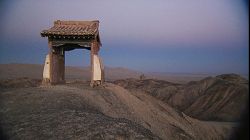
In February 2001, the Taliban issued an edict that all non-Islamic statues should be destroyed. In March of the same year, two huge statues of Buddha were blown up in the remote area of Bamiyantal in Afghanistan. This dramatic event surrounding the ancient stone colossi – unique proof of an advanced culture that bloomed until the 13th century along the Silk Road – is the starting point for a cinematic essay on fanaticism, terror and tolerance, ignorance and identity. On another path, in another period, Frei follows the footsteps of Xuanzang, the seventh-century Chinese monk famed for his sixteen-year spiritual quest along the Silk Road to India. Bamiyan was one of his stops. In Canada, Afghan writer and journalist Nelofer Pazira reflects on an old photograph of her father posing before the giant Buddhas. In Leshan, China, the director witnesses a kitschy attempt to rebuild the Bamiyan Buddha as a tourist attraction; while in Zurich high-tech reconstructions are created using "photogrammetry." A thought-provoking journey along the lines that both divide and unite people and cultures.
producer: Christian Frei Filmproductions Gmbh
screenplay: Christian Frei
camera: Peter Indergand
editor: Christian Frei
music: Philip Glass, Jan Garbarek, Steve Kuhn, Arvo Pärt
sound: Florian Eidenbenzproduction & sales info:
Films Transit International
252 Gouin Boulevard East
H3L 1A8 Montréal, Canada
tel: +1 514 844 33 58
fax: +1 514 844 72 98
info@filmstransit.com
www.filmstransit.comfilmography:
Die Stellvertreterin, 1981 / Fortfahren, 1982 / Der Radwechsel, 1984 / Ricardo, Miriam and Fidel, 1997 / Kluge Köpfe, 1998 / Bollywood im Alpenrausch: Indian Filmmakers in Switzerland, 2000 / War Photographer, 2001Gipsy Side
Balázs Gát,Hungary, 2006, 50'
The young members of Rap-Port (Mario, Luiggi, Mr. Joker and the others) together with the "masters" demonstrate how Gangsta rap is a genuine Roma music. Beatbox and Freestyle: teenager rappers from the Harlem of Budapest. And Béla Ponczók Gypsy from Radio C.
November 8. 22.15, Toldi mozi - kisterem
November 11. 14.00, Toldi mozi - nagyterem
Mario, Luigi and Mr. Joker keep interrupting each other in the heat of the discussion in this shabby, shady yard in the 8th district, the Harlem of Budapest. They are rapping, gesturing, dancing while the girls and the kids look on. Beatbox or freestyle: you name it, they can do it. They record themselves, edit, then record again – it’s all home-made, the PC is right there in the corner of the room. In the afternoon they make sure the recordings are copyrighted. At the hairdresser’s the Nigerian brother gives them the authentic hip-hop look. He is the authority on the coolest rap accessories, advisor on East-side and West-side styles, and he is the source for Biggie and Tupac outfits. Ponczók Gypsy Béla, the Radio C DJ, offers them a chance to perform on his show and in the rapper contest at the Roma Parliament. This film gives us an insight into what the members of Weszély-s Elemek (Dangerous Elements) and Rap-port want out of life, what they fear, why they sing, and how they live in the 8th district.
Producer: Balázs Gát
screenplay: Balázs Gát
camera: Zoltán Füredi, Csaba Vándor, Balázs Gát
editor: Balázs Gát, Balázs Antosproduction info:
Gát Balázs
1113 Budapest, Elek u. 6
tel.: (+36 30) 335 5642
gatbalazs@gmail.comfilmography:
2003 ZenészbúcsúztatóGo To Louisa
Grzegorz Pacek, Poland, 2005, 42'
Although Apartheid has been history now for more than ten years, power relations in South-Africa have not changed: the film reveals the faces of colonial dominance today.
November 8. 18.30, Cirko 1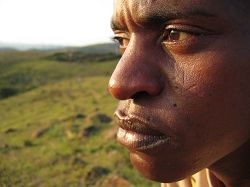
Although Apartheid has officially been history for more than ten years, power relations in South Africa have not really changed. In order to explore the surviving post-colonial hierarchy today, Pacek focused on a rubber production plant and three men involved in its operation, each of whom vehemently promotes his own interests. Stach, originally from Poland, is the factory owner; Gert is a white South African and the company's manager; Andreas is an impoverished worker from the Zulu tribe. As the story unfolds, the factory becomes a symbol of South African society in general. While the workers endeavor to improve their standing, their employers strive to maximize profits. A poignant story of the struggle for rights and humane treatment in the workplace.
producer: Ewa Dąbrowska, Witold Będkowski/Wytwórnia Filmowa Czołówka
screenplay: Grzegorz Pacek
camera: Marek Traskowski
editor: Katarzyna Maciejko-Kowalczyk
music: Andrzej Smolik
sound: Błażej Kuklaproduction & sales info:
Wytwórnia Filmowa "Czolówka" TVP SA
tel: +48 22 54 30 333
czolowka@czolowka.com.pl
www.czolowka.com.plfilmography:
Our Song, 1991 / Serbs are Good People, 1994 / Blindness, 1995 / Gamblers Like Us, 1996 / Do Guard My Body and Soul, 1997 / A Letter from Argentina, 1997 / Mongolian Trace, 1999-2000 / Such is My Karma, 2001 / Wapienna, 2002 / Planet of Rubbish, 2003
How It's Done
Marcel Lozinski , Poland , 2006, 90' | Preview
Any individual off the street can be molded into a five-star politician. So says Piotr Tymochowicz, political advisor to numerous Polish leaders. A horrifyingly droll documentary about how demagogues are created.
November 7. 16.15, Toldi mozi - kisterem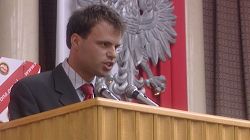
Piotr Tymochowicz, media advisor to some of Poland's top politicians, claims that anybody can be molded into a charismatic leader. He set out to prove that he can transform anyone into a successful politician. Hundreds of people answered his call; only a dozen started training and only one survived. The film crew had a unique opportunity to follow the mechanisms of the birth and evolution of the most despised aspects of the Polish political class. Polish master Marcel Lozinksi followed Tymochowicz and this project for three years, and this beautifully shot and edited work paints a compelling portrait of cynical demagogy and populism in action. Made in Poland, the film carries the universal message that demagogy and populism are not merely a Polish specialty.
producer: Zbigniew Domagalski
screenplay: Marcel Lozinski
camera: Jacek Petrycki, Andrzej Adamczak
editor: Katarzyna Maciejko-Kowalczyk
sound: Jerzy Murawskiproduction info:
Studio Filmowe Kalejdoskop
Chelmska 21, Warsaw
00-724 Poland
tel: +48 228 412 135
fax: +48 228 511 779
kaleidoskop@polbox.pl
www.kalejdoskop.art.plselected filmography:
Happy End, 1973 / Recipe for Life, 1978 / My Place, 1987 / Witnesses: Anti-Semitism in Poland, 1988 / Seven Jews from My Class, 1992 / Anything Can Happen 1995 / So It Doesn't Hurt, 1998 / I Remember, 2002
In The Pit
Juan Carlos Rulfo , Mexico , 2006, 80' | Preview
The gigantic Periferico freeway has been under construction for almost a decade. This film looks at the workers who are creating this monster and juxtaposes their everyday thoughts, behaviour, humour, and beliefs with the striking images of the giant that these ordinary guys are creating and the dangerous conditions under which they toil.
November 8. 16.00, Toldi mozi - nagyterem
November 9. 20.15, Toldi mozi - kisterem
November 10. 18.30, Cirko 2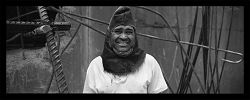
Mexican legend tells that for every bridge that is built the devil will ask for one soul, so that the bridge never falls. This film tells the story of the workers involved in the construction of a second deck to Mexico City’s inner Periferico freeway. This second deck is about to transform the city, its landscape, and the lives of its inhabitants. It is the story of the people whose hands and sweat go into the making of this mammoth work of concrete, steel and asphalt. The workers' daily lives, their hopes, their dreams and the dignity that helps them survive. Contrasts, emotions and small moments that culminate in the loss of a soul. A soul that will remain as a memory of the workers who built the second deck.
producer: Juan Carlos Rulfo
screenplay: Juan Carlos Rulfo
camera: Juan Carlos Rulfo
editor: Valentina Leduc
music: Leonardo Heiblum
sound: Natalie Bruschtein, Mauricio Santos, Jesus Santosproduction info:
La Media Luna Producciones
Felipe Villanueva 98 int. 201, Col. Guadalupe Inn, San Angel
C.P. 01020
Ciudad de Mexico, DF Mexico
tel: +52 155 565 121 19
fax: +52 155 565 121 19
lamedialuna1@hotmail.com
www.enelhoyo.com.mxsales info:
Funny Balloons
FUNNY BALLOONS
4bis rue Saint Sauveur
Paris
75002 France
tel: +33 140 130 584
fax: +33 142 333 499
info@funny-balloons.com
www.funny-balloons.comfilmography:
El Abuelo Cheno y Otras Historias, 1994 / Las Despedidas, 1998 / Del Olvido al no me Acuerdo, 1999 / Diminutos del Calvario, 2000 / El Crucero, 2006
Jesus Camp
Heidi Ewing & Rachel Grady , USA , 2006 , 84' | Preview
The youngest foot soldiers of the Lord, seen in their native environment. Becky Fisher is a children's pastor who runs "Kids on Fire," a summer camp for evangelical Christian children in North Dakota. Religious fundamentalism in the US.
November 7. 18.00, Toldi mozi - nagyterem
November 8. 20.30, Cirko 1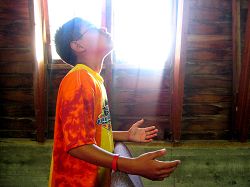
A growing number of Evangelical Christians believe there is a revival underway in America that requires Christian youth to assume leadership roles in advocating the causes of the religious movement. The directors follow Levi (12), Rachael (9) and Tory (10) to Pastor Becky Fischer’s “Kids on Fire” summer camp in Devil’s Lake, North Dakota, where children as young as 6 years old are taught to become dedicated Christian soldiers in “God’s army.” The film features these children at camp as they hone their “prophetic gifts” and are schooled in how to “take back America for Christ.” The voice of dissent arrives in the form of radio host Mike Papantonio, a Christian who disagrees with the politicization of American Christianity. In a confrontation between him and Fischer, she confirms that she is indeed suspicious of democratic society, because "in a democracy we have to give everyone equal say, and eventually that is going to destroy us."
producer: Molly Thompson for A&E IndieFilms; Heidi Ewing for Loki Films
screenplay:
camera: Mira Chang, Jenna Rosher
editor: Enat Sidi
music: Ionic Furjanic, Sanford Livingston
sound: Jacquelyn Shulmanproduction info:
Loki Films
443 Greenwich Street, 5th Floor
New York
10013 U.S.A.
tel: +1 212 343 8900
fax: +1 212 343 3419
www.lokifilms.comsales info:
Annie Roney
RO*CO Films International, LLC
80 Liberty Ship Way, Suite 5
Sausolito
CA 94965 U.S.A.
tel: +1 415 332 6592
annie@rocofilms.com
www.rocofilms.comfilmography:
Heidi Ewing: Investigative Reports-Inside Scientology, 1998 / Rite of Passage, 2001 / Dissident: Oswaldo Paya and the Varela Project, 2003 / The Boys of Baraka, 2005
Rachel Grady: The Boys of Baraka, 2005Jonestown
Stanley Nelson , USA , 2006 , 90' | Preview
Featuring never-before-seen footage, this film delivers a startling new look at the notorious People's Temple, headed by preacher Jim Jones who, in 1978, led more than 900 members to orchestrated mass suicide via poisoned punch.
November 8. 18.00, Toldi mozi - nagyterem
November 9. 22.00, Toldi mozi - nagyterem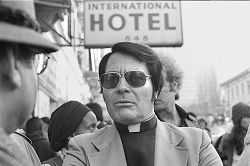
The documentary reveals the true, tragic story behind enigmatic preacher Jim Jones and his promise of a world of economic and racial equality that ultimately led to the largest mass murder-suicide in history. On November 18, 1978, more than 900 people, among them 200 children, died in the utopian community they had tried to create in the jungles of Guyana in South America. Many of those who died were from the Bay Area as Jones held sway over a huge congregation in San Francisco from 1972 to 1977. Nelson interviews former members of Peoples Temple, including many whose family members perished in Jonestown. Initially, they felt they were part of an idealistic interracial community that could change the world. But they also reveal the fear, paranoia and beatings that were part of the traumatic experience. Jones became their father, friend, savior and god. The film includes remarkable archival footage of Jones discussing his childhood in Indiana and preaching in San Francisco, where he wielded considerable political clout due to his ability to get hundreds of his followers to appear at local political events. Jonestown gives a powerful insight to the life of a community built on a dream of paradise founded on ideals and desperation.
producer: Stanley Nelson
screenplay: Marcia Smith, Noland Walker
camera: Michael Chin
editor: Lewis Erskine
music: Rena C. Kosersky
sound: Sara Chinproduction info:
Firelight Media, 324 Convent Avenue, New York, NY 10031
tel: +1 212-234-1324
fax: +1 212-234-6688
info@firelightmedia.org
www.firelightmedia.orgsales info:
Tom Koch / WGBH Educational Foundation
125 Western Avenue 02134 Boston
United States of America
tel: +1 617 3003893
fax: +1 617 30010021
tom_koch@wgbh.org
www.wgbh.orgfilmography:
The Black Press: Soldiers Without Swords, 1999 / Marcus Garvey: Look for Me in the Whirlwind, 2000 / Faces of Change, 2002 / A Place of Our Own, 2004 / Beyond Brown: Pursuing the Promise, 2004 / Sweet Honey in the Rock: Raise Your Voice, 2005
Koriam's Law and The Dead Who Govern
Gary Kildea & Andrea Simon, Australia, 2005, 110'
When cargo cult meets colonial bureaucracy. An Australian anthropologist meets his match in philosopher-informant Peter Avarea of Matong village, Pomio, Papua New Guinea, as he tries to decipher the cargo cult.
November 11. 12.15, Toldi mozi - kisterem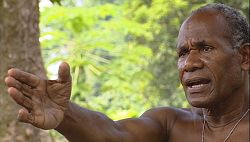
The film sets out to explore the workings and the influence of the Kivung, a powerful religious and political movement in Papua New Guinea. The Pomio Kivung Movement was founded in 1964 by Koriam, a local leader. In the face of official condemnation, its political and religious philosophy sought to uncover that path to a perfect existence, which the colonizing whites seemed to have found and selfishly monopolized. Kivung leaders scrutinized the revelations of missionaries for hidden truths and codes. They examined, too, forms of colonial governance – especially money and bureaucracy – for clues to the source of their power. Koriam’s central question was how to find a way back from the original ancestral fault that put his people in a state of subjugation. He incorporated and localized parts of Christianity whilst seeking an ever closer embrace with the beloved dead. Australian anthropologist Andrew Lattas and philosopher-informant Peter Avarea of Matong village, Pomio, Papua New Guinea guide us through the intricacies of the resulting religious practices.
producer: James J. Fox
screenplay: Gary Kildea
editor: Gary Kildeaproduction info:
ANU RSPAS Film Unit, Canberra,
Arcadia Pictures, New York.
157 W 79th St Apt 3c, New York
NY 10024-6415, United States
tel: +1 (212) 580-1299sales info:
Gary Kildea Films - Canberra
gary.kildea@anu.edu.aufilmography:
Bugla Yunggu, 1972 / Bilong Living Bilong Ol, 1973 / Trobriand Cricket, 1974 / Where Do We Go From Here? 1976 / Ileksen, 1978 / Celso and Cora, 1983 / Valencia Diary, 1992 / Man Of Strings, 1998
Losers and Winners
Ulrike Franke & Michael Loeken, Germany, 2006, 96' | Preview
400 Chinese workers break the Kaiserstuhl coke factory in the Ruhr Valley down into manageable parts and ship them back to their homeland: dismantled in the West – reassembed in the Far East.
November 10. 12.00, Toldi mozi - nagyterem
German efficiency and Chinese industriousness jostle each other on globalization's economic ladder in this revealing look at the efforts of 400 Chinese workers, supervised by 30 German foremen, to dismantle a virtually brand new but economically incompetitive coke plant in Dortmund so that it can be rebuilt in China. While the German foremen lament the loss of jobs and fret over what they regard as unsafe working practices, the Chinese workers struggle to support their families back home and wonder why the Germans always down tools for the day just when the real work is beginning. An insightful exploration of the cultural dynamics between two countries.
producer: Filmproduktion Loekenfranke
screenplay: Ulrike Franke, Michael Loeken
camera: Michael Loeken, Rüdiger Spott
editor: Guido Krajewski
music: Maciej Sledziecki
sound: Ulrike Franke, Csaba Kulcsarproduction info:
Filmproduktion Loekenfranke Gbr
Alvenslebenstr. 10
Köln
50668 Germany
tel: +49 221 943 391 01
fax: +49 221 943 391 06
info@loekenfranke.de
www.loekenfranke.desales info:
Bettina Oebel
German United Distributors
Breite Str. 48-50
Köln
D-50667 Germany
tel: +49 221 920 6931
fax: +49 221 920 6969
bettina.oebel@germanunited.com
www.germanunited.comfilmography:
Her Schmidt and Her Friedrich, 2001 / Soldatengluck und Gottes Segen, 2002
Memory Of Max, Claire, Ida and Company
Allan King, Canada, 2005, 112'
Everyday life in an old people's home: Max walks the halls dressed in a suit, Claire sings, Helen screams, others moan all day long or kick the nurses. Images of sterile loneliness.
November 10. 20.30, Cirko 1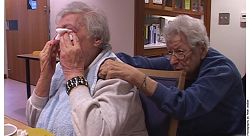
Lost, Max Trachter walks Baycrest’s corridors until he finds Claire Mandel, his sweetheart. She invites him to sit with her and her friend Ida Orliffe. Then, together with her family, Max and Ida celebrate Claire’s 89th birthday. The hard part comes when the family leaves – so hard, that for Claire, even the cake becomes meaningless. But Claire and Max love singing and Claire happily blows kisses to the camera. Ida is the odd woman out. Everyone here is looking for love and attention. An actuality drama of eight seniors living at Baycrest’s long-term care facility in Toronto. These individuals – in varying stages of cognitive decline – share their humor, anger and fear about losing their memory. A stirring, complex and emotional look at the human condition from veteran filmmaker Allan King.
producer: Cathy Avrich-Johnson
screenplay: Alan King
camera: Peter Walker
editor: Nick Hector
music: Robert Carli
sound: Jason Milliganproduction info:
Allan King
Allan King Films Limited
965 Bay Street, Suite 2411
Toronto ON
M5S 2A3 Canada
tel: +1 416 964 7284
fax: +1 416 964 7997
mail@allankingfilms.com
www.allankingfilms.comsales info:
Theresa Ho
Allan King Films Limited
965 Bay Street, Suite 2411
Toronto ON
M5S 2A3 Canada
tel: +1 416 964 7284
fax: +1 416 964 7997
th@allankingfilms.com
www.allankingfilms.comselected filmography:
Skidrow, 1956 / Gyppo Loggers, 1957 / Where Will They Go? 1959 / Bullfight, 1960 / The Pursuit of Happiness: Beyond the Welfare State, 1962 / The Peacemakers, 1963 / The Most Unlikely Millionaire, 1965 / Mortimer Griffin, Shalinsky and How They Settled the Jewish Question, 1971 / Come On Children, 1973 / Baptizing, 1975 / Silence of the North, 1981 / The Last Season, 1987 / Termini Station, 1989 / Leonardo: A Dream of Flight, 1998 / The Dragon’s Egg: Making Peace on the Wreckage of the Twentieth Century, 1998Merchants of Miracles
Gilles Remiche, Belgium, 2006, 52' | Preview
The prophets, apostles and messiahs of the Congo who heal through the laying on of hands - via the cell phone or the TV. Whatever the channel, exploiting the desperate is always profitable.
November 11. 16.00, Toldi mozi - nagyterem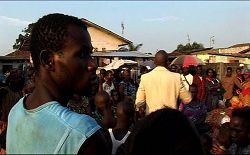
In a country torn apart by war, poverty and disease, it seems that everyone is on the lookout for a miracle. Luckily, in the Democratic Republic of Congo miracles are part of everyday life thanks to a few charismatic pastors who preach the word of the Lord and work wonders in their "churches of awakening." Reminiscent of the mega-churches in the Unites States, these gigantic congregations boast a mix of Christian values and traditional African beliefs and at the center of each devoted group of followers there stands a "prophet" who claims to be able to cure AIDS, provide material wealth and resurrect the dead. Gilles Remiche travels to Kinshasa where prophets and pastors can be found roaming the streets, holding court in auditoriums and on TV programs, to speak to the men behind this spiritual movement as well as the people who have chosen to follow the self-proclaims healers. Hovering between cynicism, megalomania and surrealism, these prophets feed off the desperation of followers whose generous donations feed their lavish lifestyles.
producer: Christine Pireaux, Thierry Michel
camera: Gilles Remiche
editor: Joel Mann
sound: Origan Canellaproduction info:
Les Films de la Passerelle
62 rue de Renory
4031 Liège – Belgium
tel : +32 43 42 36 02
fax : +32 43 43 07 20
films@passerelle.be
www.passerelle.besales info :
CBA
19F avenue des Arts
1000 Bruxelles – Belgium
tel : +32 22 27 22 30
fax : +32 22 27 22 39
ventes-cba/wip-sales@skynet.befilmography:
Obstination, 2003 / The Inexistent, 2005 / Construire the Civil Societe, 2006The Monastery
Pernille Rose Grønkjær , Denmark , 2006 , 84' | Preview
The story of Jorgen Lauersen Vig, an 82-year-old bachelor who bought a Danish castle with the aim of turning it into a monastery. Now, many years later, he is about to realize his dream, when a group of Russian Orthodox nuns arrive, led by a young nun called Amvrosia.
November 10. 22.15, Toldi mozi - kisterem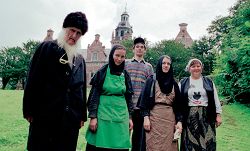
Fifty years ago Jorgen Lauersen Vig bought Hesbjerg Castle, situated in the Danish countryside, with the purpose of turning it into a monastery. Now, many years later, he is about to realize his old dream. After a visit to Russia and negotiations with the Russian patriarchate, a delegation of nuns headed by Sister Amvrosija come to Denmark in order to decide whether Vig's castle is fit to serve as a monastery. The following summer Sister Amvrosija and some Russian workers return; the nuns and the Russian workers move into the castle, and slowly they both take over some of the daily work and introduce new routines. Vig's life changes: he has never had any women around before, and now he has to share his home with the strong-willed Amvrosija and the other nuns. They have plans and wills of their own, and Vig is forced to realize that the road to fulfilling his dream is different than what he imagined.
producer: Sigrid Dyekjær for Tju Bang Film
screenplay: Jens Arentzen, Per Kirkegaard, Pernille Rose Gronkjaer
camera: Pernille Rose Grønkjær
editor: Pernille Bech Christensen
music: Johan Söderqvist
sound: Kristian Eidnes Andersenproduction info:
Tju Bang Film
Amagartorv 9,3
1160 Copenhagen K
Denmark
tel: +45 35 555530
fax: +45 70 267627
mail@tjubangfilm.dk
www.tjubangfilm.dksales info:
Danish Film Institute
Gothersgade 55
1123 Copenhagen
Denmark
tel.: +45 33 743400
fax: +45 33 743401
dfi@dfi.dk
www.dfi.dkfilmography:
Those Were the Days, 1998 / The Models, 1999 / Repeating Grandma, 2001 / Mad about TV, 2003 / A Complicated Family Life, 2003 / Fashion Patrol, 2004 / The Family, 2005My Country, My Country
Laura Potras, US, 2006, 90' | Preview
Life in Iraq for ordinary Iraqis under U.S. occupation. The film focuses on Dr. Riyadh, an Iraqi medical doctor, father of six and Sunni political candidate.
November 8. 20.00, Toldi mozi - nagyterem
November 9. 18.30, Cirko 1
November 9. 20.30, Cirko 2
November 11. 18.00, Toldi mozi - nagyterem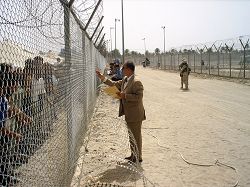
Doctor Riyadh is a father of six and a Sunni political candidate. An outspoken critic of the occupation, he is equally passionate about the need to establish democracy in Iraq, arguing that Sunni participation in the January 2005 elections is essential. Yet all around him, Dr. Riyadh sees only chaos, as his waiting room fills day after day with patients suffering the physical and mental effects of ever-increasing violence. Dramatically interwoven into the personal journey of Dr. Riyadh is the landscape of the US military occupation, with Australian private security contractors, American journalists and the UN officials who orchestrate the elections. The film presents the agonizing predicament and gradual descent of one man caught in the tragic contradictions of the United States’ occupation of Iraq and its project to spread democracy in the Middle East.
producer: Laura Poitras & Jocelyn Glatzer
screenplay: Laura Poitras
camera: Laura Poitras
editor: Erez Laufer and Laura Poitras
music: Kadhum Al Sahir
sound: Laura Poitrasproduction info:
Zeitgeist Films
247 Centre St, 2nd Fl, New York
NY 10013
tel: + 1 212 274-1989
fax: +1 212 274-1644
www.zeitgeistfilms.comsales info:
Praxis Films
443 Greenwich St., Suite 6F
New York, NY 10013
tel: + 212-268-0218
fax: +1 212-966-2251 (fax)filmography:
Flag Wars, 2003
Please Vote for Me
Weijun Chen , China , 2006, 55' | Preview
In an elementary school in the city of Wuhan in central China, eight-year old children compete for the position of Class Monitor. Their parents, devoted to their only child, join in and start to influence the results. An experiment with democracy in China.
November 8. 20.15, Toldi mozi - kisterem
November 10. 18.30, Cirko 1
November 11. 16.15, Toldi mozi - kisterem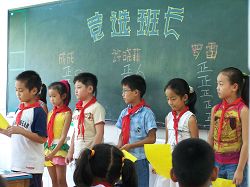
What does democracy look like in the world’s largest Communist country? Think small, very small. This documentary features a third grade class in Wahun province and the intense politicking that marks the contest for the post of Class Monitor. It is also a classic election drama, albeit with 7-year-olds. The three candidates, two boys and a girl, are selected by the teachers, but they conduct real campaigns and are chosen in a free election. Ironically, their goal is to become the student charged with maintaining order and reporting rule violations to the teachers. What starts out as an innocent game soon turns into a treacherous struggle worthy of grown-up politics. The main advisers to the candidates are their parents, who perhaps take the youngsters' nomination more seriously than the children themselves. Dirty tricks abound: bribing fellow students by promising them a certain job, dishing the dirt on opponents, using flattery and threats, and, last but not least, handing out pre-election gifts. The film provides a private view of a microcosm of contemporary Chinese culture. Please Vote for Me was made as part of the "Why Democracy?" documentary project using film to start a global debate about democracy, with productions by independent award-winning filmmakers from around the world, including China, India, Japan, Liberia, USA, Bolivia, Denmark, Afghanistan, Egypt, Pakistan and Russia.
producer: Don Edkins
camera: Weijun Chen, Zhao Hua
editor: Jean Tsien
sound: Weijun Chen, Zhao Huaproduction info:
Don Edkins
Day Zero Film Productions
7 Glynnville Terrace Gardens
Cape Town
South Africa
tel: +27 214 655 805
fax: +27 214 655 806
don@dayzero.co.za
www.steps.co.zasales info:
World Sales/Australian distributor: ArteTVfilmography:
To Live is Better Than to Die, 2003
The Red Years – Were We Terrorists?
Leo de Boer, The Netherlands, 2005, 75'
Who were the members of the Dutch "Rode Jeugd", and what did they want? In the shadow of the Red Army Fraction they fought against the war in Vietnam and capitalism. Former members are confronted with archive footage that questions the methods of their resistance.
November 10. 18.15, Toldi mozi - kisterem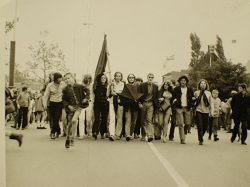
Former members of the Dutch radical Red Youth organization look back on their activities, violent attacks and victims in the 1970s. Thirty years on, the memories of their “red years,” which were determined by revolutionary ardor and sincere indignation over injustice, but also by adventure and recklessness, are still emotionally charged. They were prepared to fight, place bombs and use weapons. Some of them still consider the armed struggle “a technical matter.” Others, on the contrary, feel uncomfortable about the violence and the resulting victims. In the shadow of the German Rote Armee Fraktion, they carried out bomb attacks against the Vietnam War and capitalist society. When a group of them went to Yemen to take part in a Palestinian guerrilla training camp, the point of no return seemed to have been reached. Were they fit to be terrorists? And will they ever lose the stigma?
producer: Pieter van Huystee, Pieter van Huystee Film & TV
screenplay: Leo de Boer, Hans Dortmans
camera: Alex Booy, Bouwe Mulder
editor: Patrick Janssensproduction & sales info:
Pieter Van Huystee Film
Noordermarkt 37-39
1015 NA Amsterdam
tel: +31 (0)20 421 0606
fax: +31 (0)20 638 6255
info@pvhfilm.nl
www.pvhfilm.nlselected filmography:
The Road to Bresson, 1984 / De Ruslui, 1996 / Engelen des Doods, 1998 / Sporen van beschaving - De trein naar Grozny, 2000Rocking the Nation
Bori Kriza, Hungary, 2007, 70'
Romantic Violence: portrait of a far-right, skinhead, neo-Nazi rock band whose key words include Trianon, Jews, Gypsies, football, 100 % Hungarian, to arms!
November 9. 22.15, Toldi mozi - kisterem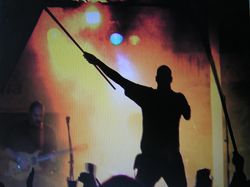
A concert tour with ”Romantic Violence”, the cult band of ”national rock”, and its fans from December 2005 till the fall of 2006. Folk musicians and skinheads, football fans and college students speak of their radical nationalistic views. They started out as a high school band in the 90’s, but today they are one of the top representatives of “national rock”. They claim they are patriots; their role models are the freedom fighters of ’56. They tour former Hungarian territories annexed by Romania and Serbia, play in clubs and at the Hungarian Sziget Festival. They travel tirelessly, for their music is their mission, “to strengthen national identity”, “to shake people up”, “to make people think” at home and abroad. Their concerts are much more than a party for the fans: they have created a community, and a way of life. They sing folk-rock numbers, legends and revisionist songs along with the Ferencvaros football team anthem. Their slogans are rocking: freedom, anti-Communism, Trianon, the Jews, Hungary, to arms!
producer: Balázs Wízner
editor: Balázs Wízner, Bori Krizaproduction and sales info:
Metaforum Film
1054 Budapest, Október 6. u. 3., Hungary
tel: +36 30 250 20 54
fax: +36 1 411 01 95
e-mail: krizab@freemail.hu, wizner@metaforum.hu
www.metaforumfilm.hu
Souvenirs
Shahar Cohen & Halil Efrat, Israel & The Netherlands, 2006 , 75'
An 82-year-old WW II veteran returns to the Netherlands to search for his never-seen child. His unemployed filmmaker son joins him. A road movie at its best, fueled by questions, memories and mountains of emotions.
November 7. 20.00, Toldi mozi - nagyterem
November 11. 16.30, Cirko 1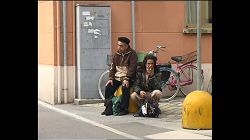
After completing his film studies, 36-year-old Israeli filmmaker Shahar Cohen was unemployed for quite some time, so his 82-year-old father suggested that he make a film about his experiences in World War II. Shahar reluctantly agreed to attend a meeting of veterans of the Jewish Brigade, where old men describe their training in Libya, their battles in the Italian countryside and their post-war stay in the Netherlands. Only when Cohen heard them bragging about the "souvenirs" they left with their Dutch sweethearts - in the form of babies - did he become motivated to make a film on the subject. Father and son retrace history by car, from Israel to Italy and the Netherlands. The result is an entertaining - and touching - road movie interspersed with archive footage. While the younger Cohen's initial interest was to search for potential half-brothers and sisters, the journey eventually provides him with much more, as he gets to know the hero of his childhood and the fault-finder from more recent years a little better.
producer: Sharon Shamir for Sirocco Productions Ltd
screenplay: Shahar Cohen
camera: Tomer Shani
editor: Halil Efrat
music: Shai Bachar
sound: Amir Barproduction info:
Sirocco productions LTD
12 Tyomkin St.
65783 Tel-Aviv
Israel
tel: + 972 3 5661218
fax: + 972 3 5661481
sirocco@zahav.net.ilsales info:
Cinephil
18 Levontin Street
65112 Tel Aviv
Israel
tel: +972 3 5664129
fax: +972 3 5601436
info@cinephil.co.il
www.cinephil.co.ilfilmography:
Shahar Cohen: Minus-Plus, 2001
Halil Efrat: Showdown at Lot's Wife, 1994Sweeping Addis
Corinne Kuenzli, Switzerland, 2007, 50'
Addis Ababa, the capital city of Ethiopia with a population of four million: portraits of remarkable Ethiopian women, sweeping the streets, trying to cope with life in a city branded by uncertainty and poverty.
November 9. 16.00, Toldi mozi - nagyterem
November 11. 16.30, Cirko 2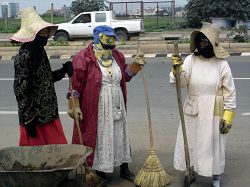
Addis Ababa, capital of Ethiopia with four million inhabitants, on a rainy day. A glance out the window of a moving car zooms in on shrouded female figures. With circumspection and respect, filmmaker Corinne Kuenzli wins the confidence of these female street-sweepers, and they allow her to film them. Their job is to beautify and modernize the city. Just recently the number of jobs cleaning the streets was doubled - to 1000. It is a sought-after job. The street sweepers have no bank accounts. Their security comes from their religion and the mutual support they give each other. The women join forces, save money together and help one another. In the privacy of their own homes, they remove their coverings, tell their life stories, speak about their worries and misery but also of their happiness and wishes for the future. A multifaceted portrait of four remarkable Ethiopian women, coping with life in a land marked by uncertainty and political tension.
producer: Franziska Reck
screenplay: Corinne Kuenzli, Peter Liechti
camera: Peter Liechti
editor: Dieter Gränicher
music: Abegasu Shiota
sound: Guido Keller, Ingrid Städeliproduction info:
Reck Filmproduktion GmbH
Dienerstrasse 7
CH-8004 Zürich
tel: + 41 44241 37 63
fax: + 41 44241 37 64
f.reck@bluewin.ch
www.reckfilm.chsales info:
Doc & Co.
13, rue Portefoin
FR-75003 Paris
doc@doc-co.com
www.doc-co.com
What Lies Ahead
Diána Groó, Hungary, 2006, 68'
She can do the laundry, wash herself, walk by herself, although she suffered from spina bifida and lack of oxygen at birth. The Peto Institution tirelessly guides disabled people towards a more independent life. This film is a tribute to their efforts.
November 10. 12.15, Toldi mozi - kisterem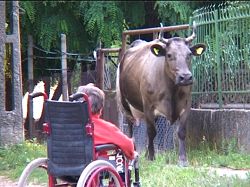
“As soon as you enter this special school, we are in a different world full of miracles. We learn that the disabled protagonists of this film live their everyday lives in the most natural way. Confronted with their openness, joy and understanding, we realize that we are the ones who build boundaries around ourselves and create stereotypes. For them the term “otherness”, and prejudice against people who are different, simply do not exist. They struggle tirelessly every single day to achieve something that people without disabilities take for granted: to make a move, a step. And when they overcome their difficulties these young people give a new meaning to perseverance and positive thinking.” Diána Groó
producer: Gábor Kovács, András Muhi
screenplay: Diána Groó
camera: Sándor Kardos
editor: Kata Juhász
sound: Tamás Zányiproduction info:
Filmpartners Ltd.
Hungary 1021 Budapest, Hűvösvölgyi út 62.
tel.: 36 1 391 48 00
fax: 36 1 391 48 09
filmpartners@filmpartners.hu
&
Inforg Studio
H-1092 Budapest, Kinizsi u. 11.
tel: (+36 30) 639 3383
fax: (+36 1) 219 0961
www.inforgstudio.hufilmography:
Annuska, 1992 / Zsiga bácsi, 1996 / Valahonnan valahová, 1997 / Ottavio, 1997 / A Kékszemű, 1998 / Kazinczy utca, 1999 / Tarka képzelet - Vityebszk felett - Chagall álmai, 2001 / Córesz, 2001 / Tarka képzelet - Renoir álmai, 2003 / Tarka képzelet - Flamand közmondások - Bruegel álmai, 2004 / Tarka képzelet - Rousseau álmai, 2004 / Csoda Krakkóban, 2004 / Urlicht, 2006 / Tarka képzelet - A virágünnep vége, 2006
Yaptik-Hasse
Edgar Bartenev, Russia, 2006, 29'
A group of nomadic Nenets live in the Siberian tundra at "The End of the World", as the territory is known in the local dialect, traveling around the region with their herd of reindeer.
November 8. 22.15, Toldi mozi - kisterem
November 9. 16.00, Toldi mozi - nagyterem
November 9. 20.30, Cirko 1
November 11. 14.00, Toldi mozi - nagyterem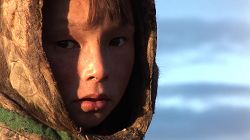
A group of nomadic Nenets live in the Siberian tundra at "The End of the World", as the territory is known in the local dialect, traveling around the region with their reindeer herd. Yaptik-Hasse is one of the younger members of the extended Yaptik family. He is also their good spirit and therefore privileged to ride on a sacred sledge. Edgar Bartenev's film is a poetic contemplation of the rhythms of a life governed by the pulse of nature. The film offers an intimate portrait of a family as well as an insight into a nomadic culture.
producer: Vyacheslav Telnov
screenplay: Edgar Bartenev
camera: Alexander Filippov
editor: Andrey Orlov
music: Alexander Dmitrievproduction info:
St. Petersburg Documentary Film Studios
Krukov kanal 12
St. Petersburg
190 068 Russia
tel: +7 812 714 0806
cinedoc@peterstar.rufilmography:
Beds, 1999 / Waltz, 2001 / Odya, 2003Young, Nazi and Proud
David Modell, UK, 2002, 49' | Preview
College student Mark Collett, British National Party member, tirelessly prepares to become chairman of the party's youth branch. He speaks of his sympathies for Nazi Germany and its leaders, about girls and friends. In the gym or on a campaign tour: the camera follows him, even beyond - to the core of his contradictory self.
November 7. 18.15, Toldi mozi - kisterem
November 8. 20.30, Cirko 2
David Modell spent several months alongside Mark Collett, member of the British National Party and dedicated candidate for the position of chairman of the party's youth branch. This university student speaks of his sympathies for Nazi Germany and declares that he would prefer to live in the 1930s in Hitler's Reich than in many contemporary cities of the democratic United Kingdom. Although he does not hide his affiliation to extremist ideologies, he voices them more openly only when he believes the camera is not recording. As Mark gradually wins political support and public attention, a shocking example of political and media machination unfolds. First and foremost, however, the film paints a chilling portrait of a man who demonstrates that dangerous ideas have not lost their ability to impress. The camera follows Mark to the core of his contradictory self.
producer: Richard Fabb
camera: David Modell
editor: David Modell
sound: Stewart Marshallproduction info:
David Modell
david@davidmodell.com
www.davidmodell.com
Juvenile Liaison
Nick Broomfield, UK, 1975, 97' | Preview
'The film the police arrested', Broomfield's scathing account of the Lancashire Police Force Liaison Division's handling of young offenders in the area.
November 9. 16.15, Toldi mozi - kisterem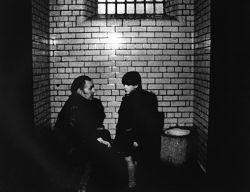
Banned for 22 years after pressure from the Lancashire Police, this often shocking documentary follows a 1968 police youth initiative in Blackburn, Lancashire. Juvenile liaison officers were appointed to the police force with the purpose of serving as a link between families, schools, and young offenders. While the intention of the program was to prevent children from becoming juvenile delinquents, policing methods were often brutal and mentally abusive; the fact that their charges were children was simply not taken into account. The bulky, hulking figure of Sgt Ray berates a tiny Indian girl for stealing eight and a half pence and some pencils; the special needs child George is dragged from his bed to explain his violent behavior. PW Brooks is little better with the psychological abuse she metes out to her charges, using any leverage from family members to break the children. The film stirred up considerable controversy thanks to its depiction of the harsh treatment inflicted on children brought in for minor offences.
producer: Nick Broomfield, Joan Churchill
screenplay: Nick Broomfield & Joan Churchill
camera: Joan Churchill
editor: Nick Broomfield & Joan Churchill
sound: Nick BroomfieldTattooed Tears
Nick Broomfield & Joan Churchill, UK, 1978, 85' | Preview
An intimate encounter with the inmates of a maximum security juvenile correctional facility in Chino, California Is there a way out?
November 8. 16.15, Toldi mozi - kisterem
November 9. 16.30, Cirko 2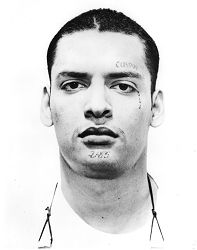
A disturbing and moving look at life in a Youth Authority Prison in Chino, California. Broomfield and Churchill's “sequel” to Juvenile Liaison raises structural and institutional problems of the US penal system. The workings of a purportedly liberal penal institution are condemned through an intensely dramatic concentration on four of its victims, aged 17-21, ostensibly there for rehabilitation, but actually undergoing repetitive and vindictive punishment. In the process, the film presents the spectre of individual sufferings; one inmate who dramatizes his resistance specifically for the camera receives humiliating treatment which the filmmakers duly observe but cannot forestall. A raw depiction of a dehumanizing penal system that crushes the hopes and dreams of at-risk teenagers.
producer: Nick Broomfield & Joan Churchill
screenplay: Nick Broomfield & Joan Churchill
camera: Nick Broomfield & Joan Churchill
editor: Nick Broomfield & Joan Churchill
sound: Nick BroomfieldThe Leader, His Driver and The Driver's Wife
Nick Broomfield, UK, 1990, 85’ | Preview
The leader of a neo-Nazi white extremist party in South Africa, Mr Terre Blanche threatens to plunge the country into civil war in an attempt to derail negotiations to end apartheid.
November 7. 22.15, Toldi mozi - kisterem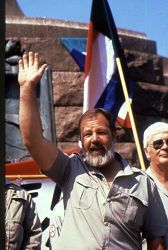
A poignant image of Apartheid in South Africa through the portrait of Eugène Terre'Blanche, founder of the far-right organization AWB. Throughout the film, Broomfield attempts to set up an interview with the control-obsessed Terre'Blanche, who stubbornly undoes all of the plans in order to prove his power. For the majority of the film, during which Broomfield is unable to obtain an interview with the Leader himself, his attention is drawn to the driver and his wife (JP and Anita Meyer) who are happy to share their views on racial inequality and anticipated revolution. Acutely aware of the all-too-seductive nature of Fascism and the media's historical complicity in that seduction, Broomfield has produced an anti-Triumph of the Will, deliberately lampooning a movement whose power rests as much in grave self-importance as it does in violent intimidation.
producer: Rita Oord, Nick Broomfield
screenplay: Nick Broomfield
camera: Barry Ackroyd
editor: John Mister
sound: Nick BroomfieldAileen Wuornos: The Selling of a Serial Killer
Nick Broomfield, UK, 2004, 90' | Preview
1989-1990, Florida. The world’s first woman serial killer is sentenced to life. The story of a prostitute who killed seven of her clients has profit potential for corrupt policemen, the defense lawyer, even Hollywood. But who cares about the real Aileen Wuornos?
November 10. 20.15, Toldi mozi - kisterem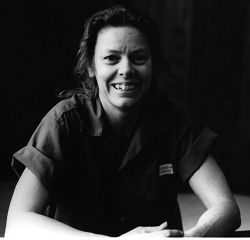
Aileen Wuornos, allegedly the first woman serial killer, was convicted of killing seven of her clients. Nick Broomfield tries to arrange an interview with her, first through her friendly but inept lawyer Steve Glazer and then through her “adoptive” mother, born-again Christian Eileen. As the negotiations over fees begin, the film becomes an exploration of the way a “serial killer” is constructed and sold as an image, starkly illustrated by the police officers who worked on the case, and who Broomfield discovers have sold their story to Hollywood producers. When he eventually meets Aileen he encounters a severely disturbed woman, and finds himself questioning her treatment at the hands of the media and the state.
producer: Nick Broomfield, Rita Oord
screenplay: Nick Broomfield
camera: Barry Ackroyd
editor: Nick Broomfield
sound: Nick BroomfieldHis Big White Self
Nick Broomfield, UK, 2006, 93' | Preview
South African neo-Nazi extremist party leader Eugene Terre Blanche is released from prison. The director revisits the scene of his earlier film about Eugene 'The Leader, The Driver And The Driver's Wife', to find out what happened to the leader's followers.
November 8. 16.30, Cirko 2
November 11. 18.15, Toldi mozi - kisterem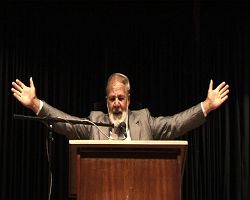
When Broomfield completed The Leader, His Driver and The Driver's Wife in 1991, he received death threats warning him never to return to South Africa. Yet 14 years later he went back to make the follow-up documentary His Big White Self, revisiting the extreme right-wing AWB and the people involved. He meets up with JP, Eugène Terre'Blanche’s former driver, and Anita, JP's former wife. JP feels betrayed by the leaders who promised him a revolution that never came, while Anita has resigned herself to a lonely existence with her grandchildren and her cats, seeming to accept the new South Africa. Terre'Blanche, on the other hand, has been up to all sorts of mischief, including a prison sentence for the attempted murder of his watchman and the hint of even shadier crimes that have never been fully exposed. Broomfield plucks up courage and tries once more to interview the man, who now writes poetry and claims to be leading a quiet life.
producer: Nick Broomfield for Lafayette Film
screenplay: Nick Broomfield
camera: Joan Churchill
editor: Peter Christelis
sound: Nick Broomfieldproduction & sales info:
Lafayette Film
Deans Watermill, Ardingly Road
RH16 2QY Lindfield, West Sussex
England
tel: + 44 1444 484510
fax: + 44 1444 484760
info@nickbroomfield.com
www.nickbroomfield.comselected filmography:
Who Cares? (1971) / Proud to be British (1973) / Juvenile Liaison (1975) / Behind the Rent Strike (1979) / Whittingham (1980) / Fort Augustus (1981) / Soldier Girls (1981) / Tatooed Tears (1982) / Chicken Ranch (1983) / Lily Tomlin (1986) / Driving me Crazy (1988) / Diamond Skulls (1989) / The Leader, His Driver and the Driver's Wife (1991) / Aileen Wuornos: The Selling of a Serial Killer (1992) / Monster in a Box (1992) / Tracking Down Maggie (1994) / Heidi Fleiss: Hollywood Madam (1995) / Fetishes (1996) / Kurt and Courtney (1998) / Biggie & Tupac (2002) / Aileen: Life and Death of a Serial Killer (2003) / His Big White Self (2006) / Ghosts (2006)
